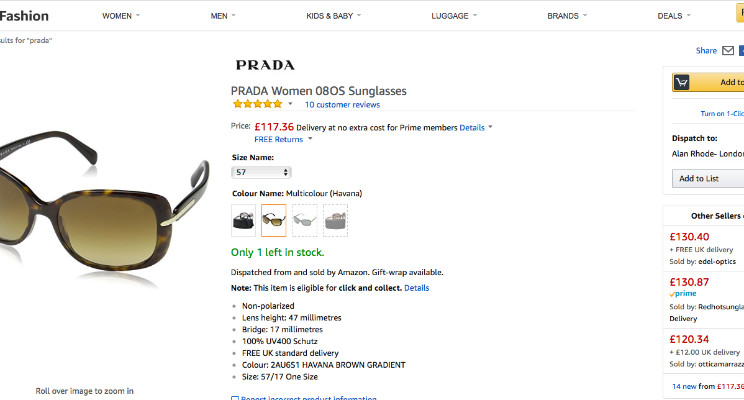A decision of the European Court of Justice (ECJ) on whether luxury brands can lawfully forbid distributors from using marketplaces to sell their products is expected soon (Case C-230/16 – Coty Germany GmbH v. Parfumerie Akzente GmbH).
The ruling will have a paramount effect on many distribution agreements adopted within the fashion industry.
Most global luxury brands prefer to avoid marketplaces as distribution channels for their products (Amazon, Ebay and others). The main reason is that marketplaces can easily become the site for price warfare between competing merchants.
Understandably, high-end fashion houses tend not to sympathize with the concept of involving their creations in marketplace haggles for the lowest price – a situation which may tarnish their brand reputation.
It does not come as a surprise either that fashion producers tend to insert specific provisions in agreements with third-party distribution partners that prevent the latter from using marketplaces to sell their products, lest the risk of a brand dilution.
In recent years, the validity of these agreements has been questioned under EU competition law.
In July 2014, the German shoemaker Adidas had to remove a ban on sales via marketplaces inserted in its distribution agreements after that the Bundeskartellamt, the German Competition Authority, had initiated proceedings against the brand (following numerous complaints by sportswear retailers).
In August 2015, the same Authority stated that any agreement between ASICS and its network of distributors banning the use of marketplaces by the distributors should be considered a violation of Article 101 of the EU Treaty.
In the Coty v. Parfumerie Akzente case, the ECJ has been asked by a German court for a preliminary ruling on “whether and to what extent selective distribution systems relating to luxury and prestige products, and designed mainly to preserve the “luxury image” of those products, are aspects of completion that are compatible with Article 101”.
In essence, EU law prohibits commercial agreements which may affect trade between EU states and which may lead to the prevention, restriction or distortion of competition within the single market.
It is also true that, at specific conditions, vertical distribution restraints are exempted from the prohibition set forth by Art. 101 of the EU treaty, in particular when they contribute “to improving the production or distribution of goods or to promoting technical or economic progress, while allowing consumers a fair share of the resulting benefit”.
In the case at hand, Coty, a leading German supplier of luxury cosmetics, has inserted into a distribution contract employed uniformly throughout Europe a clause prohibiting distributors from selling online through any third-party undertaking which has not been authorised by Coty.
Parfumerie Akzente is a long-time distributor of Coty products. In 2014, the two companies started a dispute after that Parfumerie Akzente continued to sell Coty products on the marketplace Amazon.de against the instructions given by Coty.
Such dispute has eventually led to the request of a preliminary ruling by the ECJ on whether absolute bans on marketplace sales by brands can be considered a breach of EU competition law.
In his opinion on this case, issued on 27 July 2017, Advocate General Nils Wahl has stated that:
“a supplier of luxury goods may prohibit authorised retailers from selling its products on third-party platforms such as Amazon or eBay. Such a prohibition, if meant at preserving the luxury image of the products concerned, is not, under certain conditions, caught by the prohibition of agreements, as it is likely to improve competition based on qualitative criteria”.
According to the Advocate General, selective distribution systems for the distribution of luxury and prestige products can be considered compliant with Article 101 of the EU Treaty when they meet three concurrent criteria:
1. resellers are selected according to objective qualitative criteria uniformly applied in a non-discriminatory manner for all potential resellers; and
2. based on the product nature, selective distribution is needed to preserve the quality of the product and to ensure that the product is correctly used; and furthermore
3. the criteria established do not go beyond what is necessary to reach the purpose for which the concerted vertical restraint has been imposed.
Traditionally, the outcome of ECJ rulings is more likely than not to be consistent with the opinion previously released by the Advocate General on the case.
The text of the opinion can be found here: https://goo.gl/WXLB3K

